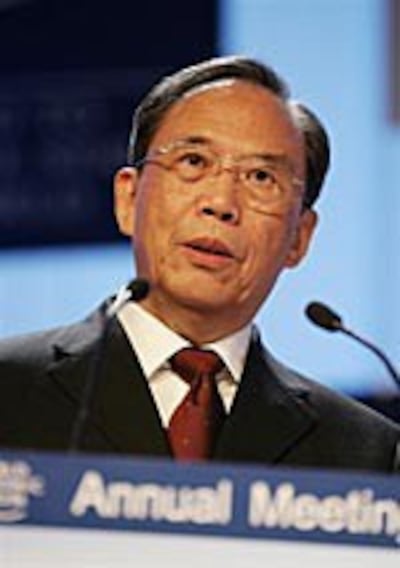
Top Chinese officials are taking tougher stands against energy waste and pollution, but experts say it is still too soon to tell whether they will enforce environmental rules.
Speaking at a development forum in Beijing on March 18, Vice Premier Zeng Peiyan and National Development and Reform Commission (NDRC) Minister Ma Kai both cited China’s high usage of energy resources compared with its contribution to the global economy.
China accounts for 15 percent of world energy consumption but only 5.5 percent of global gross domestic product, Ma Kai said, according to China's official Xinhua news service.
"The overall growth of the Chinese economy is inspiring, but one of the worries is that we have paid too dear an environmental and resources price for such growth," Ma said in a China Daily report.
In comments at the forum’s opening session, Zeng voiced similar concerns, pointing to “serious environmental and resources constraints, irrational industrial structure, and development gaps between urban and rural areas….”
I really do sense that there has been a growing seriousness at the central level.
A growing purpose
In interviews with Radio Free Asia, experts said the statements by Zeng and Ma show that China’s government is focusing on the problem. But doubts remain whether officials will follow through with tough energy and environmental reforms.
Jennifer Turner, coordinator of the China Environment Forum at the Washington-based Woodrow Wilson International Center for Scholars, said “I really do sense that there has been a growing seriousness at the central level.”
Beijing is “trying everything,” Turner said: programs for renewable energy, bilateral aid for clean coal technology, and cooperation with groups such as the U.S.-based Natural Resources Defense Council.
At the same time, China has missed energy-efficiency targets for 2006, according to a statement by Premier Wen Jiabao at a meeting of the National People’s Congress (NPC) in March.
In his address to the NPC, Wen said that China would not revise its long-term goals for better performance by 2010 under the current Five-Year Plan, but he failed to issue targets for 2007 similar to those set for last year.
“He may be wanting to talk more behind the scenes on what are some realistic targets,” Turner said.
“But I also think that he can’t run away from this issue because there are too many energy efficiency targets that have been set … The renewable energy law, the energy law from a couple of years ago—all of these have stipulations on energy efficiency.”
“There are a lot of programs that [China’s government has] been doing with other countries on this issue,” Turner added. “It’s an issue that’s not going to go away.”
Pressure to achieve goals
Turner said it would be difficult for China to close down smaller, less energy-efficient plants in production sectors such as steel and cement.
These “are going to be some of the last big major employers in some of these old rust-belt areas, and the kind of unemployment that would come by closing those is going to be pretty scary,” she said.
John Coequyt, energy policy specialist for the Washington office of the environmental group Greenpeace, said the pressure on China’s leaders to achieve efficiency goals once they are set is high.
“They’re not pointing to a target this year because they don’t know what it would be, and they’re nervous about failing,” he said.
Coequyt added that China’s contribution to world pollution is now hindering efforts to reduce global warming.
“Meeting their five-, 10-, and 20-year [energy efficiency] targets is exceedingly important,” he said.
“From the environmental community’s perspective internationally, the two most important actions are developed countries’ taking stronger commitments and developing countries’ expanding their participation in solutions to global warming.”
“And no country is higher up on that list than China.”
Original reporting by Michael Lelyveld. Edited for the Web by Richard Finney.
